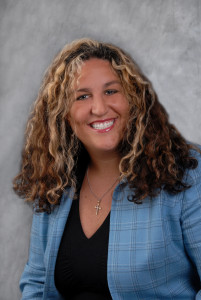Top Twelve Myths in Special Education
by Heather Hulse, J.D., M.S., M.A.
McAndrews Law Offices, P.C.
Myth – Special education students are only entitled to services, accommodations, and specially designed instruction their school district readily has available.
Truth – Special education students are entitled to the services, accommodations, and specially designed instruction necessary to meet their complete educational needs. Therefore, if a district does not have a particular service of program readily available, it must still provide it if it is necessary to meet the student’s educational needs.
Myth – Parents of special education students must agree to “medically necessary” services recommended by the mental health system.
Truth – Parents of special education students may disagree with “medically necessary” services, particularly if the recommendation conflicts with provisions of a free appropriate public education (FAPE).
Myth – Special education students can be denied their right to a FAPE until mental health clearance is obtained.
Truth – Special education students cannot be denied their right to a FAPE even when their mental health needs have exacerbated, and the school district must provide necessary supports and services to address the student’s mental health needs.
Myth – Parents of special education students who have been granted an Independent Educational Evaluation (IEE) by the school district must choose from a list of evaluators provided by the school district.
Truth – Parents of special education students are entitled to choose the evaluator when the school district agrees to fund an IEE, so long as the evaluator meets school district criteria applicable for independent evaluators.
Myth – Special education students must go into more restrictive placements, such as full time emotional support or a partial hospitalization placement, to receive social/emotional or behavioral services, such as counseling, psychological services, psychiatric services, and social skills instruction.
Truth – Special education students must be placed in the least restrictive environment appropriate to meet their complete educational needs and the full range of special education services, including counseling, psychological services, psychiatric services, and social skills instruction, must be provided, if appropriate to the student’s needs, in the regular education environment.
Myth – Homebound Instruction and Instruction in the Home are the same.
Truth – Homebound Instruction is a medical service, which is appropriate in only short-term medical circumstances that impact the student’s ability to attend school. Instruction in the Home is a special education service that provides for the student’s full Individualized Education Program (IEP) to be delivered in the home and is appropriate in circumstances where the student’s special education needs are so significant that the student requires instruction in the home.
Myth – Special education students can be denied the right to attend class field trips.
Truth – Special education students cannot be denied field trips. If services or accommodations are required for the student to attend, the school district must provide what is necessary.
Myth – Parents of special education students must sign the Notice of Recommended Educational Placement (NOREP) within ten days under all circumstances.
Truth – If the NOREP is for the initial provision of services (this is the first IEP) and parents do not consent, parents cannot later pursue compensatory education. Parents can consent to the initial provision of special education services, but indicate their disagreement with components of the IEP being offered or not offered. If parents of special education students do not respond to a NOREP, the school district may automatically implement the IEP after ten days. Parents can always disagree with a NOREP, even after ten days. If the NOREP offers a placement that the parents disagree with and they want the child to remain in the student’s current placement, it is very important for the parents to not only disagree with the NOREP, but to also indicate their request for due process.
Myth – Parents of special education students must agree with the school district’s recommendations to place their child in an alternative educational placement if the student exhibits behavioral problems.
Truth – The only time a school district may unilaterally place a special education student in an alternative educational placement is if the student has brought a weapon to school, brought drugs or drug paraphernalia to school, or committed serious bodily injury on another person. Moreover, the alternative placement in these circumstances is limited to forty-five days and the school district is still required to provide a FAPE to the student.
Myth – Students with Intellectual Disabilities, like other students with disabilities, must be reevaluated every three years.
Truth – Students with Intellectual Disabilities must be reevaluated every two years and this cannot be waived by parents in Pennsylvania.
Myth – Truancy can be pursued for all students who do not attend school.
Truth – There is no compulsory attendance for unenrolled kindergarten students and students seventeen and older in Pennsylvania. Thus, truancy cannot be pursued when a parent chooses not to enroll their child in kindergarten and students at least seventeen years old.
Myth – Special education procedures and meeting cannot occur over the summer because special education staff does not work over the summer.
Truth – Special education procedures and IEP meetings can occur over the summer, as special education administrators work all summer and students must have an appropriate IEP in place at the start of each school year.

